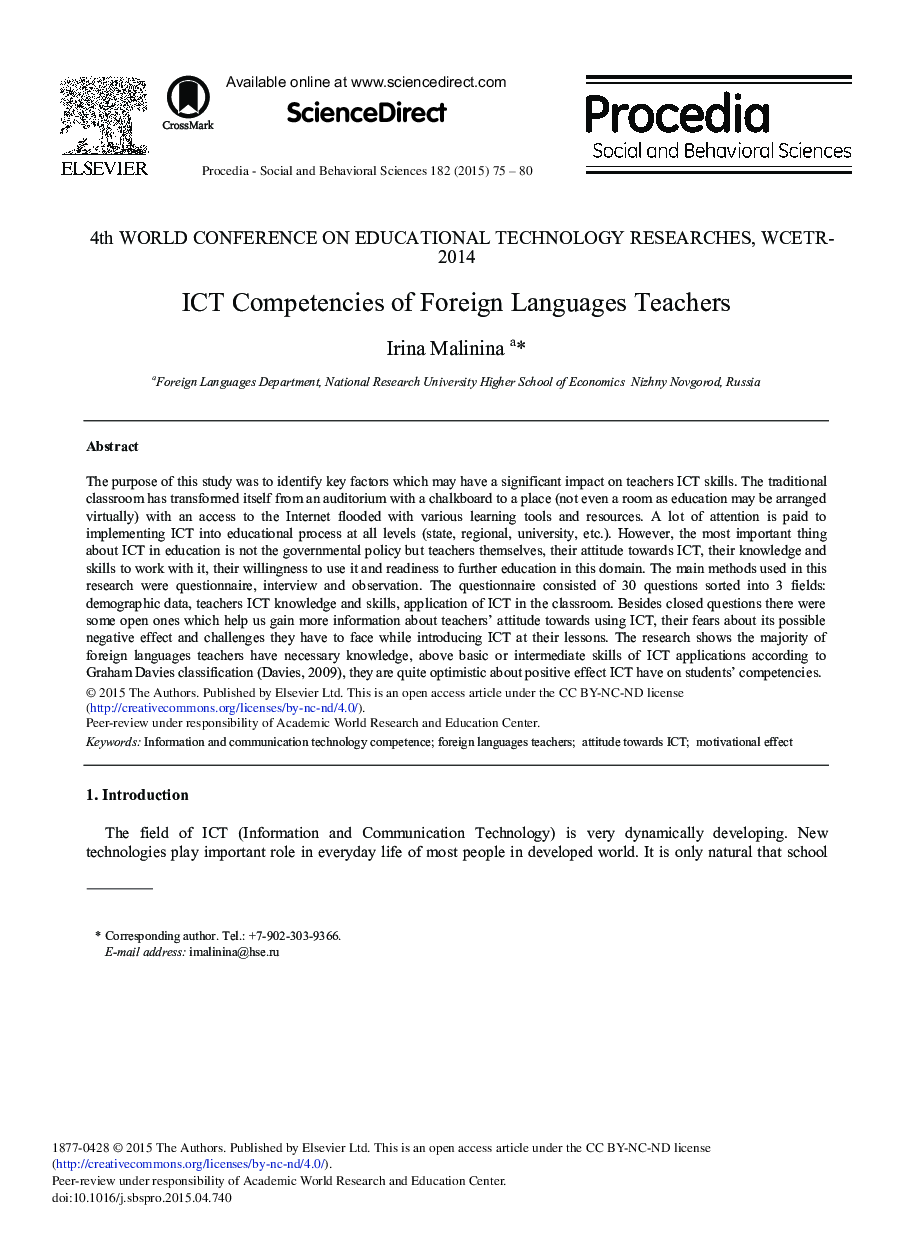| Article ID | Journal | Published Year | Pages | File Type |
|---|---|---|---|---|
| 1110204 | Procedia - Social and Behavioral Sciences | 2015 | 6 Pages |
The purpose of this study was to identify key factors which may have a significant impact on teachers ICT skills. The traditional classroom has transformed itself from an auditorium with a chalkboard to a place (not even a room as education may be arranged virtually) with an access to the Internet flooded with various learning tools and resources. A lot of attention is paid to implementing ICT into educational process at all levels (state, regional, university, etc.). However, the most important thing about ICT in education is not the governmental policy but teachers themselves, their attitude towards ICT, their knowledge and skills to work with it, their willingness to use it and readiness to further education in this domain. The main methods used in this research were questionnaire, interview and observation. The questionnaire consisted of 30 questions sorted into 3 fields: demographic data, teachers ICT knowledge and skills, application of ICT in the classroom. Besides closed questions there were some open ones which help us gain more information about teachers’ attitude towards using ICT, their fears about its possible negative effect and challenges they have to face while introducing ICT at their lessons. The research shows the majority of foreign languages teachers have necessary knowledge, above basic or intermediate skills of ICT applications according to Graham Davies classification (Davies, 2009), they are quite optimistic about positive effect ICT have on students’ competencies.
